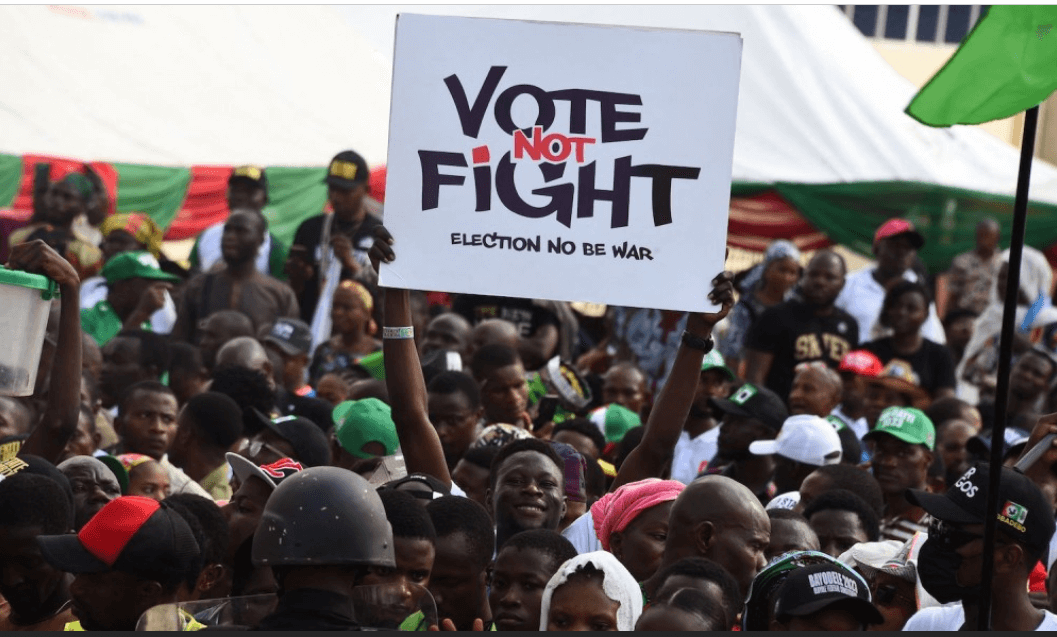Nigeria has been gravely bedevilled with myriads of seemingly intractable challenges. The country is currently held down by socioeconomic volatility, heightened security tension, and economic and political uncertainties, with its future hanging in the balance.
Many have predicted that the 2023 general election will determine many things about the country, including whether or not it will continue to exist as one united, indivisible nation. Some frank political analysts have warned that the country may be coming to a precipice unless deliberate measures are taken to redirect it.
Economy
Today, Nigeria is under a heavy load of domestic and foreign debts, which the Debt Management Office or DMO, on December 9, 2022, put at N44.6 trillion. According to the DMO, the total public debt stock comprises domestic debt of N26.92 trillion and external debt of N17.5 trillion.
The unemployment rate has soared in the country as economic hardship bites harder. In 2022, the unemployment rate reached 33% from 32.5% the previous year. The rate could jump to 37% by the end of 2023, said the Nigerian Economic Summit Group or NESG in its 2023 Macroeconomic Outlook report titled “Nigeria in Transition: Recipes for Shared Prosperity.” NESG said the country’s poverty headcount might rise to 45%.
This has resulted in mass poverty in Africa’s most populated country – now called the world’s poverty capital. In its last review of the nation’s poverty map, the National Bureau of Statistics or NBS said 62.9% of Nigerians (133 million people) are multidimensionally poor. Nigeria, with its 216 million people, took the spot from India, which has a population of over 1.4 billion.
Insecurity
Nowhere appears safe seems in Nigeria currently. From insurgency in the northeast to banditry in the northwest to savagery perpetrated by so-called unknown gunmen in the southeast, nowhere seems safe in Nigeria currently.
Kidnapping for ransom is the order of the day in other parts of the country. Road travel is increasingly becoming menacing, while rail transportation is no longer a safe alternative. The bandits and kidnappers are waiting everywhere, on the roads and rail tracks.
Others
Infrastructure deficit is biting harder across the country. Nigeria needs an estimated $80 billion in financial commitment annually over 10 years to fix its infrastructure deficit, according to a former acting managing director and CEO of the Bank of Industry, Waheed Olagunju.
The nation’s educational and health systems are also down, explaining the high rate of Nigerians’ educational and medical tourism to other countries.
Down to leadership
The problems besetting the country are inexhaustible, and they all come down to poor leadership. The nation’s public administration ecology and corridors of power accommodate people of questionable character. Leaders are recruited mainly based on ethnicity, religion and other negative sentiments. The predictable consequence is that there are today no Nigerians, but Hausas, Yorubas, Igbos, etc.
Amid all these, another opportunity to get the right leadership beckons as Nigerians troop out on February 25 to their polling units to elect a new president. The question at this juncture is – what type of president does Nigeria need at this time of its national life?
“We need a leader who is competent with proven integrity, charisma and passion for providing exemplary leadership. Our unity has been battered, and only a selfless leader and patriot can help us get back on track. “We need a leader who will rule with equity and fairness, …who will not squander our goodwill, loyalty and allegiance,” Chidozie Ezeugwa, an Abuja-based public affairs commentator, tried to answer the question.
“This is the time to pull Nigeria from the pit of uncertainties and gloom back to the path of progress.”
Kanayochukwu Obidigbo, another analyst based in Awka, Anambra State, shares the same thoughts.
“If a leader cannot demonstrate love for the fatherland, it will be difficult to have citizens who love the country. So, everything is leadership, and we need a patriotic leader who firmly believes in Nigeria,” he said.
Beyond religion and ethnicity, in the past, people also voted based on party affiliations, irrespective of whether or not they believed the candidate had the needed character and competence to occupy the office.
Many pro-democracy activists and commentators are now warning citizens against voting based on party sentiments on February 25.
“Frankly speaking, parties have failed us. At this critical time, Nigeria needs a president who understands the pains of the masses, a president with clean records. We need someone who hates evil and corruption passionately, not someone who pays lip services to the anti-corruption fight,” said Elvis Okolie, a political scientist.
The 2023 general election undoubtedly presents another opportunity to get leadership right in Nigeria. Only time will tell if Nigerians will make the right choice this time.






